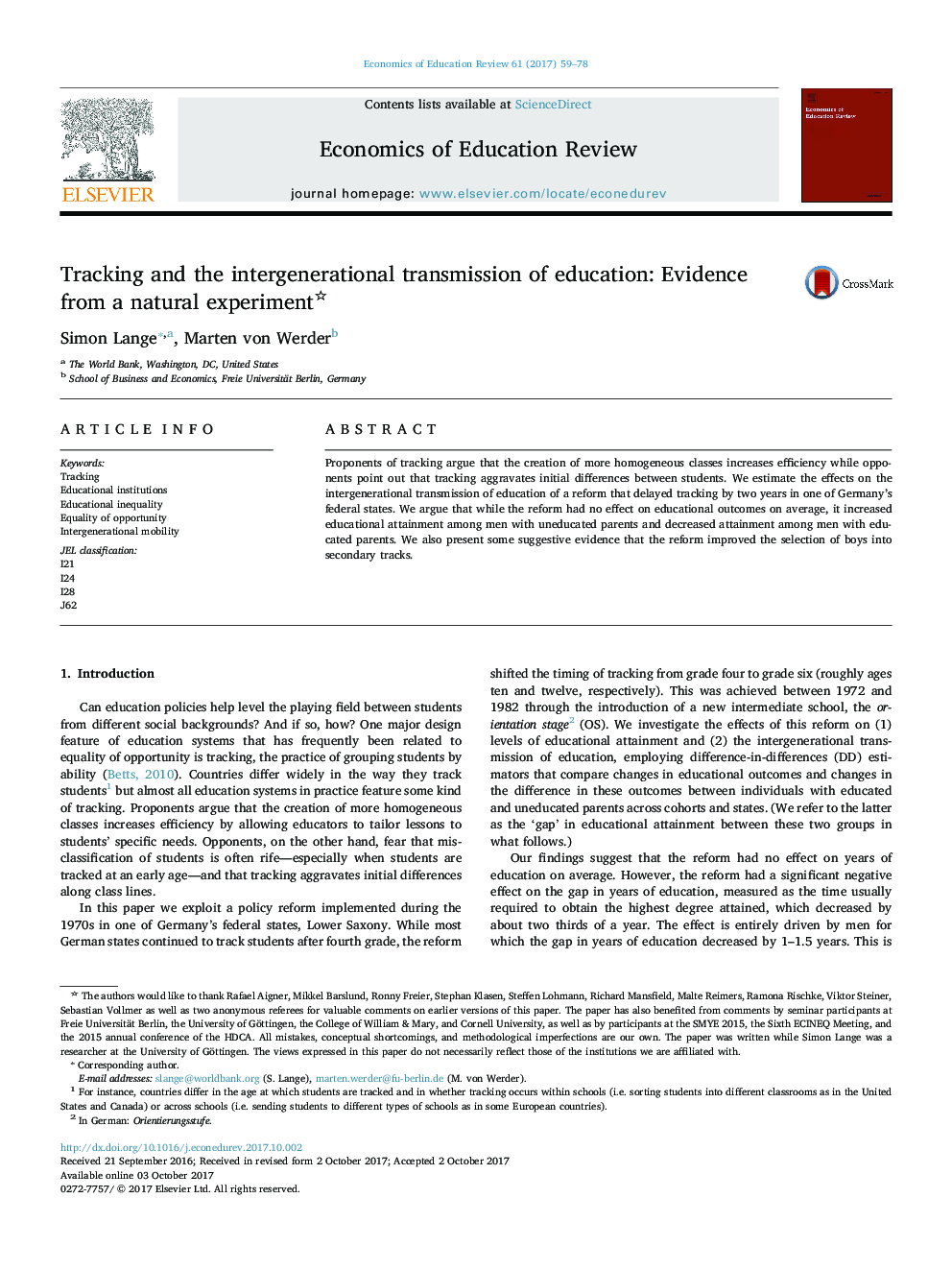| Article ID | Journal | Published Year | Pages | File Type |
|---|---|---|---|---|
| 4938258 | Economics of Education Review | 2017 | 20 Pages |
Abstract
Proponents of tracking argue that the creation of more homogeneous classes increases efficiency while opponents point out that tracking aggravates initial differences between students. We estimate the effects on the intergenerational transmission of education of a reform that delayed tracking by two years in one of Germany's federal states. We argue that while the reform had no effect on educational outcomes on average, it increased educational attainment among men with uneducated parents and decreased attainment among men with educated parents. We also present some suggestive evidence that the reform improved the selection of boys into secondary tracks.
Keywords
Related Topics
Social Sciences and Humanities
Economics, Econometrics and Finance
Economics and Econometrics
Authors
Simon Lange, Marten von Werder,
